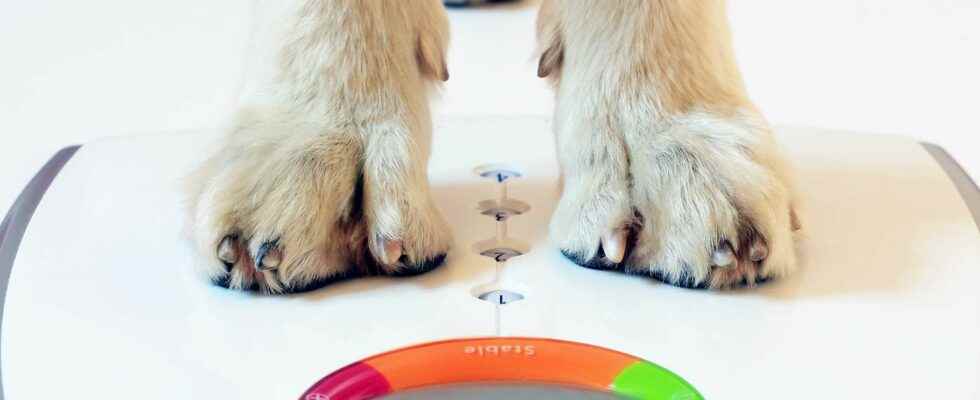A dog that is too big is not a healthy dog. A dog that will stay with you for less time. And it’s the same with a cat. So if the animal that shares your life is overweight, don’t wait. There are ways to help him get back into shape without major strains or deprivations.
You will also be interested
[EN VIDÉO] Do you know these facts about cats? The Cat has been following the Man for a long time now… But do you really think you know his abilities? Some are unusual, while others give it an extraordinary side!
We eat too much or too badly. And we don’t spend enough. The same goes for our animals. More and more of our cats and dogs are in overweight. Understand that their weight exceeds their ideal weight by 5 to 10%. According to studies, between 40 and 60% of our pets are affected. More and more of our pets are even considered obese. With a weight that exceeds their ideal weight by at least 20%.
This is a problem because being overweight affects health of our dogs and our cats. Pains joint problems cutaneouscardiovascular or respiratory disorders, diabetes. Generally speaking, thelife expectancy of an obese cat or dog decreases by two years. Hence the importance for those who share their lives to become aware of this – because polls show that only 10% of French people recognize a weight problem in the animal that lives with them – and to implement measures to avoid overweight or, if it is already installed, to remedy it.
Monitor your cat or dog’s diet
Among the causes of overweight in our pets, there is first of all excessive feeding. How can you resist your dog’s gaze begging you to drop a piece of cheese? Or the meowing of your cat asking for its share of sausage? However, it is essential.
To avoid weight problems for the animal that shares your life, the first thing to do is to feed it the right amount. From good quality croquettes, there is no such thing. If, of course, you respect the prescribed portions.
Certain foods can complement your dog’s ration, in particular. Green beans, for example. They are poor in calories. And they thus allow without great risk to create a feeling of satiety. Especially if your dog tends to be overweight, like Labradors. Green beans – as long as they remain well cooked – can even be used as a low-calorie treat. Ditto for zucchini or cucumber which, in addition, has the gift of hydrating cats and dogs without having theair.
Keep your dog or cat moving
The other cause of weight gain in cats and dogs is lack of activity physical. So don’t let bad weather be your excuse. For a dog, looking for a piece of zucchini hidden in the living room is already an opportunity to burn calories. And for a cat, there are endless toys that should help encourage it to move. While lowering his stress – another factorobesity.
At mealtime – especially for your dog – you can scatter the kibble in the kitchen. Or use a so-called “maze” bowl. Enough to give him some exercise. And prevent him, as a bonus, from eating like a glutton. For a better effect of satiety.
For your cat, don’t hesitate to hide kibble up high or in a plastic cup. plastic reusable. Even under an easy to lift carpet or in a narrow passage. By having fun finding them, he will feel like he has eaten more. And he will have satisfied his hunting instinct.
The best, of course, is to give your pet access to the outdoors. Your cat should then leave to exercise on its own. Your dog will need you more. For a few ball throws or a short walk around the neighborhood. At least once a day. For a duration which will depend on age and his physical abilities, of course. With the benefit collaterala more relaxed animal upon returning home.
Take advice from your veterinarian
Besides these two causes which you can quite easily have a direct impact on, others might require the advice of a veterinary to help your pet maintain – or regain – its healthy weight.
The sterilization or castration, for example, tend to lower the need for energy of an animal. This is why there are specially dosed kibbles for castrated or sterilized cats or dogs. They are often enriched with fiber to encourage the feeling of satiety.
With age, your pet becoming less active, it may also come to gain a little weight. Here too, opt for a suitable diet. A so-called “senior” diet, less rich in energy. Your veterinarian will be able to advise on this.
Finally, certain diseases can be the cause of overweight. As with us, a disruption of the thyroid, for example. Or even theosteoarthritis which limits the physical activity of the animal. In these cases, your veterinarian should be able to offer you solutions specifically adapted to the case of your cat or your dog.
Interested in what you just read?
